Recent Blog Posts
Is It Possible to Fight a DUI Charge in Illinois?
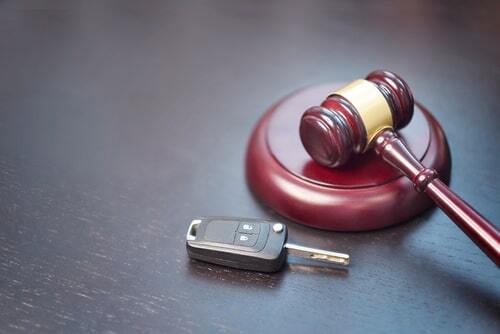 Under certain circumstances, it is possible to fight a DUI charge in Illinois. Being arrested can feel stressful. It is important to remember that an arrest is not the same as a conviction. You still have rights, and you still have options.
Under certain circumstances, it is possible to fight a DUI charge in Illinois. Being arrested can feel stressful. It is important to remember that an arrest is not the same as a conviction. You still have rights, and you still have options.
If you are dealing with a charge in 2026, taking the time to understand the process can help you feel more in control. Our Aurora, IL DUI defense lawyer can review your situation, answer your questions, and help you determine the next steps with clarity and care.
Can You Challenge a DUI Charge in Illinois?
Many DUI cases can be challenged, particularly when there are concerns about how the stop occurred or how evidence was collected. The prosecution has the burden of proving the charge beyond a reasonable doubt. This is the strictest level of proof required in the criminal justice system.
What is the Difference Between a Formal and Informal Secretary of State Reinstatement Hearing?
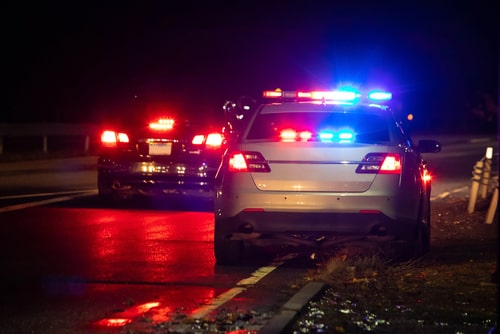 The difference between a formal and informal Secretary of State reinstatement hearing in Illinois depends on how serious your driving history is. These hearings often come up after a DUI-related suspension or revocation.
The difference between a formal and informal Secretary of State reinstatement hearing in Illinois depends on how serious your driving history is. These hearings often come up after a DUI-related suspension or revocation.
DUI charges are common in Illinois. Reporting based on state data shows that tens of thousands of drivers are arrested for DUI each year, which means many people later need a hearing to try to get their license back. These hearings are not meant to punish you again. They are meant to decide whether it is safe for you to drive.
If you are facing this process, a Kane County, IL Secretary of State hearings lawyer can help you understand what type of hearing applies to you and what the state is looking for.
The True Impact of a DUI Conviction
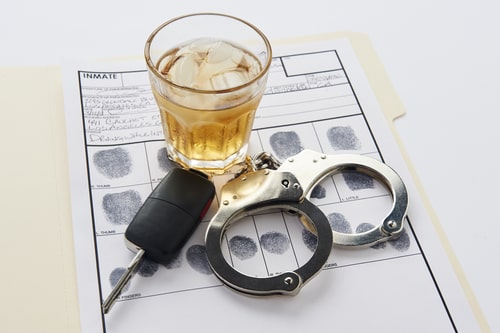 A DUI conviction affects much more than your ability to drive. In 2025, the National Highway Traffic Safety Administration reported that alcohol-impaired driving still accounts for roughly 30 percent of all traffic fatalities nationwide. As of 2026, Illinois law still requires courts to impose mandatory penalties for DUI convictions, including first offenses, with limited discretion once a conviction is entered.
A DUI conviction affects much more than your ability to drive. In 2025, the National Highway Traffic Safety Administration reported that alcohol-impaired driving still accounts for roughly 30 percent of all traffic fatalities nationwide. As of 2026, Illinois law still requires courts to impose mandatory penalties for DUI convictions, including first offenses, with limited discretion once a conviction is entered.
If you are facing a DUI arrest, seeking legal guidance early is the best way to understand the full impact. An Aurora, IL DUI defense lawyer can help you evaluate what a conviction could mean for your future.
What Really Happens After a DUI Conviction in Illinois?
A DUI conviction brings both criminal penalties and administrative consequences. These often happen at the same time and can continue long after the court case is over.
What Turns a Theft Charge into a Felony in Illinois?
 Many people assume that theft charges are not all that serious and are typically misdemeanors. This may or may not be the case, and such an assumption can be dangerous for your future. Theft charges in Illinois can be treated very differently. Some theft charges are misdemeanors, while others can quickly escalate into felonies.
Many people assume that theft charges are not all that serious and are typically misdemeanors. This may or may not be the case, and such an assumption can be dangerous for your future. Theft charges in Illinois can be treated very differently. Some theft charges are misdemeanors, while others can quickly escalate into felonies.
A felony conviction, aside from having serious legal penalties attached, can also bring long-term collateral consequences. The difference between a misdemeanor and felony theft charge can come down to issues like the value of the property taken, prior convictions, and the type of item taken. Even a first-time offender may be shocked to find he or she is facing felony theft charges.
Illinois law allows prosecutors to elevate theft cases, even when no force was used and no one was hurt. If you are facing theft charges, it is imperative that you understand how your charges could escalate into felonies. This, and having an experienced Kane County, IL criminal defense attorney, are the first steps toward building a strong defense to your charges.
Are Passive Alcohol Sensors Legal at Illinois Traffic Stops?
 Illinois law enforcement agencies are quietly adopting Passive Alcohol Sensors (PAS), which are handheld devices typically built into flashlights or other traffic-stop tools. These devices "sniff" for alcohol in the air around the driver. Aside from the fact that PAS devices detect ethanol without requiring a breath sample (raising the question of whether PAS use equals an unlawful search), there are no state standards for calibration, reliability, or officer training.
Illinois law enforcement agencies are quietly adopting Passive Alcohol Sensors (PAS), which are handheld devices typically built into flashlights or other traffic-stop tools. These devices "sniff" for alcohol in the air around the driver. Aside from the fact that PAS devices detect ethanol without requiring a breath sample (raising the question of whether PAS use equals an unlawful search), there are no state standards for calibration, reliability, or officer training.
Currently, officers are not required to disclose the use of a PAS device, even though it often provides them with probable cause to administer a field sobriety test and/or a portable breathalyzer test. Essentially, the PAS is a device with no rules because it is not recognized under Illinois DUI statutes (625 ILCS 5/11-501) and is not admissible as evidence in a DUI trial.
Illinois DUI: Interlock Compliance and False Violations
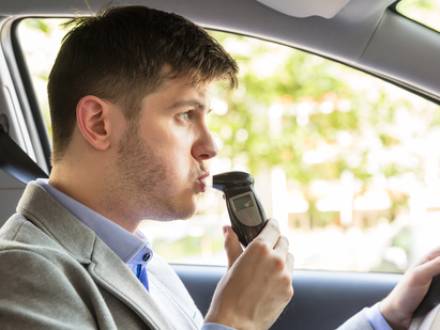 Illinois drivers who are working hard to regain their driving privileges following a DUI can be hindered by false violations of their Breath Alcohol Ignition Interlock Device (BAIID). While the BAIID is meant to be a safeguard to prevent those with DUI convictions from driving while impaired, technical glitches, calibration errors, and misinterpreted data can cause drivers to be accused of violations they never committed.
Illinois drivers who are working hard to regain their driving privileges following a DUI can be hindered by false violations of their Breath Alcohol Ignition Interlock Device (BAIID). While the BAIID is meant to be a safeguard to prevent those with DUI convictions from driving while impaired, technical glitches, calibration errors, and misinterpreted data can cause drivers to be accused of violations they never committed.
BAIID violations are taken very seriously in reinstatement hearings by the Illinois Secretary of State and can result in extended suspensions or revocation of driver’s licenses. If you need assistance with BAIID compliance failures, a DuPage County, IL license reinstatement lawyer can challenge inaccurate readings during your reinstatement hearing.
What You Should Know About the Illinois BAIID Program
The BAIID program in the state is administered by the Illinois Secretary of State under 625 ILCS 5/6-206.1. Drivers who have been convicted of a DUI and given a Monitoring Device Driving Permit must have the BAIID installed in their vehicle. The purpose is to ensure sobriety while driving during the permit period and to monitor compliance before the driver is eligible for license reinstatement.
Mistakes and New Facts: Revisiting SOS License Decisions
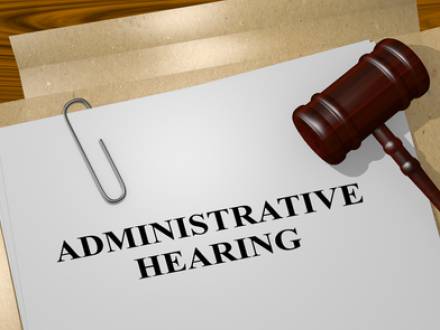 If you had a Secretary of State hearing regarding regaining your driving privileges after a DUI, you may assume the decision is final. And, in most cases, it is final. But what if new evidence comes to light, a treatment evaluation changes, a clerical mistake is discovered, or your circumstances shift dramatically from the time of the hearing?
If you had a Secretary of State hearing regarding regaining your driving privileges after a DUI, you may assume the decision is final. And, in most cases, it is final. But what if new evidence comes to light, a treatment evaluation changes, a clerical mistake is discovered, or your circumstances shift dramatically from the time of the hearing?
Is it possible to reopen the decision of the Secretary of State? While it is rare, exceptions do exist when fairness and due process outweigh the administrative preference for finality. Keep in mind that true reopening is unusual and generally requires proof of a clerical error or a procedural defect.
You can, however, base a new petition on a changed condition, such as new medical clearance or treatment, and this may be the most practical way to achieve reinstatement. If you are trying to determine whether you should reopen a SOS decision or start an entirely new petition, the best step you can take is to speak to an experienced Aurora, IL Secretary of State hearing lawyer.
Challenging Illinois Electronic Surveillance in Criminal Cases
 Electronic surveillance is no longer exclusive to spy thriller movies; it is a powerful tool used by prosecutors in Illinois state criminal cases. From wiretapping phones to hiding microphones to capture personal conversations, electronic surveillance (720 ILCS 5/14) helps law enforcement record conversations and gather evidence to build a strong criminal case. Surveillance orders are not unlimited, and when mistakes are made in how the order is issued or executed, the evidence could become inadmissible in court.
Electronic surveillance is no longer exclusive to spy thriller movies; it is a powerful tool used by prosecutors in Illinois state criminal cases. From wiretapping phones to hiding microphones to capture personal conversations, electronic surveillance (720 ILCS 5/14) helps law enforcement record conversations and gather evidence to build a strong criminal case. Surveillance orders are not unlimited, and when mistakes are made in how the order is issued or executed, the evidence could become inadmissible in court.
If you are facing Illinois criminal charges that rely on information gathered from covert electronic surveillance devices, it is essential to understand that these orders can be challenged. When you have a highly skilled Naperville, IL criminal defense attorney as your legal advocate, you can expect a strong defense and the best possible outcome to your charges.
Challenging Breathalyzer Tests Over Illnesses or Medications
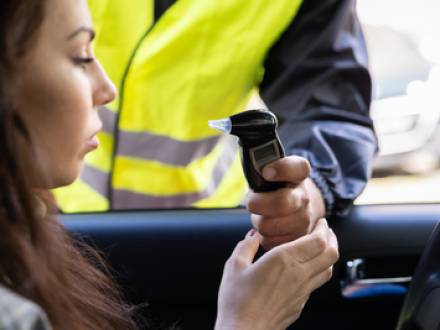 Ongoing challenges and recent court cases have highlighted some persistent flaws with DUI breathalyzer tests. The device itself can be faulty, particularly when it has not been regularly calibrated and tested, or the officer may not administer the test correctly due to a lack of training. Environmental factors, like extreme temperatures, can potentially skew the results of a breathalyzer test, as can the presence of residual mouth alcohol from certain foods, drinks, or even mouthwash.
Ongoing challenges and recent court cases have highlighted some persistent flaws with DUI breathalyzer tests. The device itself can be faulty, particularly when it has not been regularly calibrated and tested, or the officer may not administer the test correctly due to a lack of training. Environmental factors, like extreme temperatures, can potentially skew the results of a breathalyzer test, as can the presence of residual mouth alcohol from certain foods, drinks, or even mouthwash.
Manufacturers have consistently refused to disclose the source code for their breathalyzer software, so full scientific scrutiny regarding how the results are calculated has been elusive. In a 2025 Minnesota case, a judge ordered the disclosure of source code for an Intoxilyzer 5000, citing the "enormous" potential for errors resulting from the unproven methodology of the device. Since breath samples are not preserved, the machine essentially validates its own "secretive analysis."
Illinois SOS Hearings: Why "Being Sober" Isn’t Always Enough
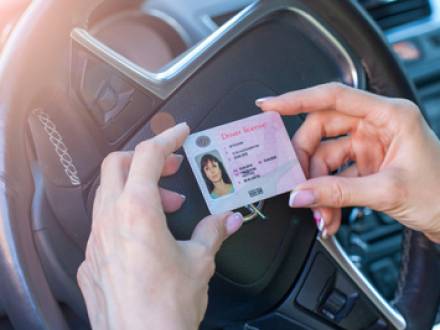 After an Illinois DUI conviction, the path back to "normal" can be long and difficult, especially when it comes to regaining a suspended driver’s license. You may believe that "getting sober" is all that is required, but the Illinois Secretary of State is not simply going to take your word for that.
After an Illinois DUI conviction, the path back to "normal" can be long and difficult, especially when it comes to regaining a suspended driver’s license. You may believe that "getting sober" is all that is required, but the Illinois Secretary of State is not simply going to take your word for that.
While sobriety is crucial (and a primary component of license reinstatement), you must also prove that you have changed your behavior, addressed the root causes of your DUI, and are now a safe, trustworthy driver. In short, you must successfully prove during your hearing that you are no longer a threat to public safety.
If you are facing a license reinstatement hearing with the Illinois Secretary of State, it can be extremely beneficial to work with a knowledgeable Will County, IL license reinstatement lawyer. You are much more likely to have your driver’s license reinstated when you are prepared for the hearing and have all necessary documentation.

 630-448-2001
630-448-2001






